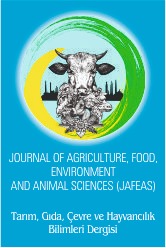
Tarım, Gıda, Çevre ve Hayvancılık Bilimleri Dergisi
Yazarlar: Mubeen ul Hasan, Ayhan Ceyhan
Konular:-
DOI:
Anahtar Kelimeler:Molecular marker polymorphism heritability genetic diversity,Molecular Marker Polymorphism Heritability Genetic Diversity
Özet: Conventional breeding programs have limitations while working with the quantitative traits and traits with low heritability. Furthermore, the identification of defective genes that can cause the development of a disease cannot be identified through conventional strategies until the development of the disease. The Discovery of molecular markers has made it easier for animal breeders and animal geneticists to enhance the productivity of animal breeding programs. Different kinds of molecular markers, RAPDs, SNPs, AFLPs, QTLs, and SSR are being used in animal breeding for gene mapping, phylogenetic studies, disease resistance studies, genetic conservation, and genetic diversity. Molecular markers also provide the advantage of working with low heritability and complex quantitative traits. QTL markers are being used for quantitative traits like milk production meat production because they are linked to quantitative trait genes. Marker-assisted breeding has helped the breeding programs to increase the efficiency of the breeding programs. Molecular markers like SNPs can be used to detect the mutation in genes at an early age. Microsatellites have been used at a very large scale for phylogenetic identification. In this review, we will discuss the importance and application of molecular markers in animal breeding and genetics.